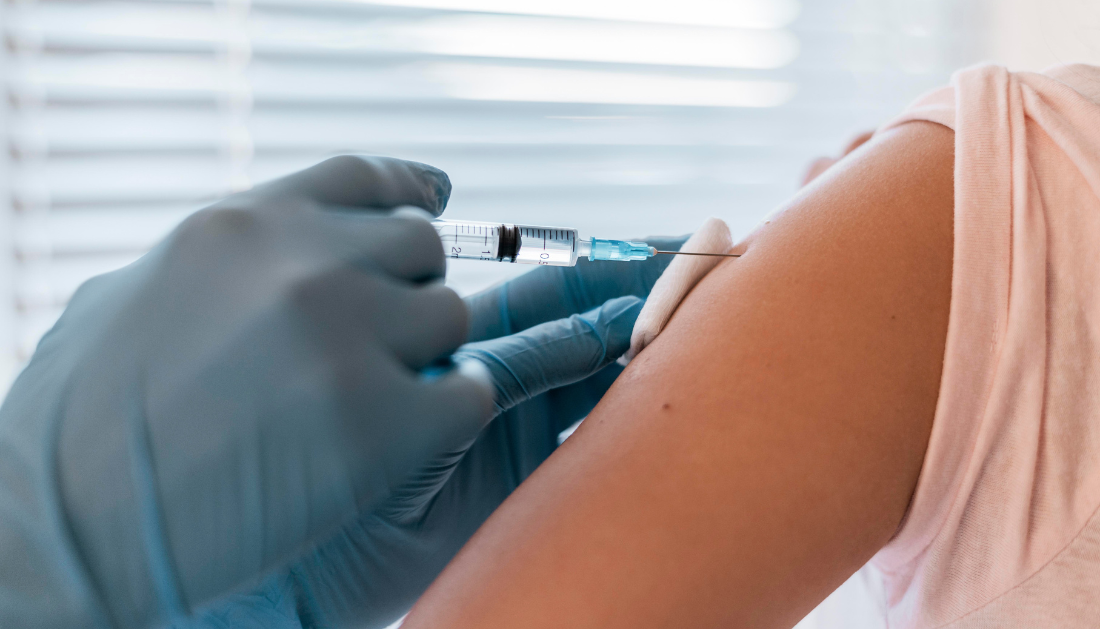

Reducing health care expenses for senior citizens by doing away with cost sharing for some Medicare Part D-covered medications and vaccines is one of the objectives of the Inflation Reduction Act (IRA). A team led by Dima Qato, the Hygeia Centennial Chair and Associate Professor at the USC Mann School of Pharmacy and Pharmaceutical Sciences, assessed the effect of the IRA policy eliminating patient out-of-pocket costs on the uptake of shingles vaccine, the most frequently administered vaccine covered by Part D, in order to help ascertain whether the impact aligns with the IRA’s intent.
The study, which was published as a research article in JAMA: The Journal of the American Medical Association, discovered that the number of shingles vaccinations covered by Part D increased by 46% in 2023 as opposed to the year prior to the IRA policy’s adoption on January 1.
Since the danger of contracting the virus increases with age, doctors advise persons 50 years of age and older to get the shingles vaccine. About one in three persons in the country suffer from shingles, a condition that starts as a painful rash and can cause postherpetic neuralgia, a chronic form of nerve pain.
Qato et al. discovered that over the study period, the number of shingles vaccinations administered to individuals with private coverage decreased by 21%, from 374,176 per month to 295,231, when comparing Part D to commercial insurance.
“Policy matters,” says Qato, who also directs the Mann School’s Program on Medicines and Public Health and is a senior fellow at the USC Schaeffer Center for Health Policy & Economics. “And when these policies eliminate the costs, they remove barriers in accessing essential medications and preventive services, including vaccinations.”
“These findings add to the robust evidence base that lowering patient out-of-pocket costs increases the uptake of high-value clinical services. Similar research has demonstrated that similar policies that remove financial barriers, such as those in the IRA, increase access, enhance equity and ultimately improve health.”- A. Mark Fendrick, study co-author, professor of internal medicine and public health, University of Michigan
The study made use of monthly data from shingles vaccinations administered between January 2022 and December 2023 in retail pharmacies, where 80% of the shots are given. The researchers stress that additional study is necessary to determine whether the IRA is reducing immunization rate discrepancies.
“There are more pharmacies located in-;and offering-;vaccinations in higher-income, white neighborhoods than in communities of color,” Qato says. “So it’s important to evaluate the impact of policies like the IRA on equity and to ensure that the elimination of cost-sharing reduces-;and does not worsen-;disparities in shingles vaccination rates.”
Co-authors of the study included Rebecca Myerson, a senior fellow at the Schaeffer Center who is not a resident, and John A. Romley, an associate professor at USC Mann and a senior fellow at the Schaeffer Center. Dana Goldman, co-director of the Schaeffer Center, dean of the USC Price School, and the C. Erwin and Ione L. Piper Chair, was also a co-author. The Mann School and the Price School are partners in the Schaeffer Center.
For more information: Shingles Vaccination in Medicare Part D After Inflation Reduction Act Elimination of Cost Sharing, JAMA, https://doi.org/10.1001/jama.2024.7348
more recommended stories
 Caffeine and SIDS: A New Prevention Theory
Caffeine and SIDS: A New Prevention TheoryFor the first time in decades,.
 Microbial Metabolites Reveal Health Insights
Microbial Metabolites Reveal Health InsightsThe human body is not just.
 Reelin and Cocaine Addiction: A Breakthrough Study
Reelin and Cocaine Addiction: A Breakthrough StudyA groundbreaking study from the University.
 Preeclampsia and Stroke Risk: Long-Term Effects
Preeclampsia and Stroke Risk: Long-Term EffectsPreeclampsia (PE) – a hypertensive disorder.
 Statins and Depression: No Added Benefit
Statins and Depression: No Added BenefitWhat Are Statins Used For? Statins.
 Azithromycin Resistance Rises After Mass Treatment
Azithromycin Resistance Rises After Mass TreatmentMass drug administration (MDA) of azithromycin.
 Generative AI in Health Campaigns: A Game-Changer
Generative AI in Health Campaigns: A Game-ChangerMass media campaigns have long been.
 Molecular Stress in Aging Neurons Explained
Molecular Stress in Aging Neurons ExplainedAs the population ages, scientists are.
 Higher BMI and Hypothyroidism Risk Study
Higher BMI and Hypothyroidism Risk StudyA major longitudinal study from Canada.
 Therapeutic Plasma Exchange Reduces Biological Age
Therapeutic Plasma Exchange Reduces Biological AgeTherapeutic plasma exchange (TPE), especially when.

Leave a Comment